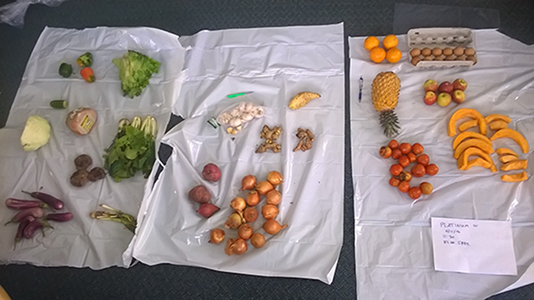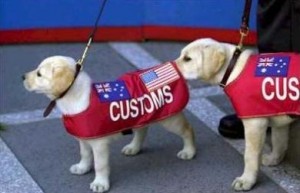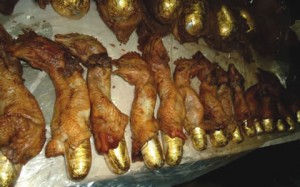The New Zealand Ministry for Primary Industries says a visiting yacht skipper hid fruit, vegetables and meat all over her vessel instead of declaring them to a quarantine officer in Opua, Bay of Islands, in November 2014.
 Dianne Margaret Joy Young, 64, resident of Australia, pleaded guilty to possessing unauthorised goods and providing a false statement to a quarantine officer in Kaikohe District. Judge de Ridder fined her $1500 on each charge – $3,000 in total.
Dianne Margaret Joy Young, 64, resident of Australia, pleaded guilty to possessing unauthorised goods and providing a false statement to a quarantine officer in Kaikohe District. Judge de Ridder fined her $1500 on each charge – $3,000 in total.
During a search of the vessel, that had just arrived from Fiji, a Ministry for Primary Industries (MPI) quarantine officer found an assortment of fresh items hidden in different compartments – eggs, oranges, apples, tomatoes, pumpkin, pineapple, onions, kumara, ginger, garlic, spring onions, meat patties, ham, eggplant, bok choy, cabbage, cucumber, capsicum and lettuce.
All are considered ‘risk goods’ and could harbour pests such as Queensland Fruit Fly that could damage New Zealand crops and export opportunities.
As the ‘risk goods’ were being uncovered, Ms Young initially maintained there was nothing further on board. She later showed the quarantine officer further risk goods, saying that she had intended to eat it all on board and didn’t want to waste it.
MPI Northern Investigations Manager David Blake says the conviction and fine sends a message that visiting yachties will face harsh consequences if they don’t take our biosecurity rules seriously.
“Ms Young’s actions endangered both New Zealand’s natural environment and the livelihood of New Zealand’s farming community.
“The interception of the risk items shows New Zealand’s biosecurity system is working. It also justifies MPI’s increased biosecurity focus on arriving yachts over the last two seasons.”
A French skipper was convicted and fined $3,000 last year for similar offences after deliberately hiding ‘risk goods’ when her vessel was inspected in Opua after arriving from New Caledonia in November 2014.






 importing sausages from Germany to continue a meal tradition started by the actress’s mother.
importing sausages from Germany to continue a meal tradition started by the actress’s mother.